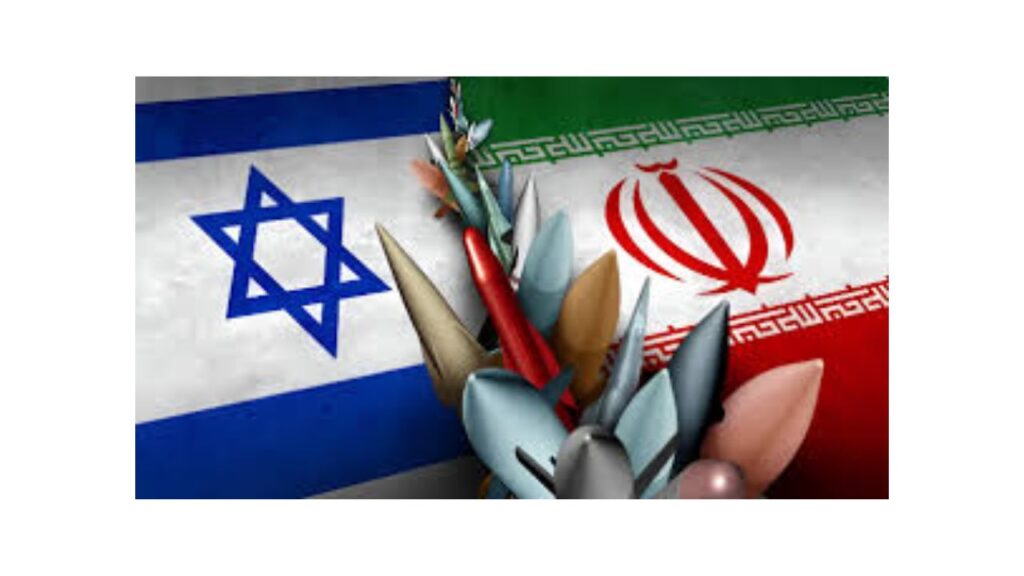The United States announced plans to increase its military presence in the Middle East as tensions there are high and a potential Israel-Iran war looms. The question now is: Will the conflict pit the “Axis of Resistance” against the “Abraham Alliance”?
According to three US and Israeli officials who spoke with Axios, Iran is expected to attack Israel as soon as Monday.
The death of a Hamas leader in Tehran and a Hezbollah commander in Beirut raised fears of a wider conflict, so Iran and its regional allies threatened retaliation, which is why this action was taken.
Two buzzwords that are becoming more popular amid the tension are “Abraham Alliance” and “Axis of Resistance.”
Iran is the driving force behind the Houthis, Hamas, and Hezbollah that make up the Axis of Resistance.
Netanyahu has consistently emphasized how Iran and its allies in the so-called “Axis of resistance” pose an existential threat to Israel and the surrounding area.
What is Abraham Alliance?
Speaking before a joint session of the US Congress, Israeli Prime Minister Benjamin Netanyahu suggested creating the “Abraham Alliance” as a regional coalition to oppose Iran’s influence. The Abraham Accords, which normalization agreements between Israel and several Arab states were mediated during the Trump administration, are the foundation of this proposal.
In response to recent coordinated actions against Iranian aggression, Netanyahu announced the creation of the Abraham Alliance. On April 14, a number of states and the US helped stop Iranian drones and missiles headed toward Israel. Following an Israeli attack on Iran’s consulate in Damascus that claimed the lives of senior military officials, Tehran launched these attacks.
Netanyahu said, “This alliance would be a natural extension of the Abraham Accords.” “All countries that are at peace with Israel and those who will make peace with Israel should be invited to join this alliance.”
One important development in Middle Eastern diplomacy during the Trump administration was the establishment of the Abraham Accords. Israel established formal diplomatic ties with the United Arab Emirates, Bahrain, Sudan, and Morocco as a result of these agreements.
The United States, Israel, and our Arab allies face challenges from Iran’s axis of terror in the Middle East. This is not a conflict between cultures. It’s a war between civilization and barbarism,” Netanyahu proclaimed. “For the forces of civilization to triumph, America and Israel must stand together.”
Axis of resistance
Since Hamas launched its attack on Israel on October 7, YUUIran and a number of its allies, collectively referred to as the “axis of resistance,” have provided support to the organization. Hezbollah in Lebanon and Iran are members of this coalition.
Iran is formally dedicated to destroying Israel and refers to it as the “Zionist entity”. Since the start of the Gaza conflict, the nation has supported armed groups operating throughout the region that have engaged with Israel.
Based in Lebanon, Hezbollah is the most potent organization in the “axis of resistance” and has been involved in numerous cross-border gunfights with Israel since the start of the conflict. After Israel invaded Beirut in 1982, Hezbollah, which means “Party of God” in Arabic, was founded during the civil war that raged in Lebanon from 1975 to 1990. The Revolutionary Guards of Iran helped form the group, which fought Israeli forces that were occupying southern Lebanon up until 2000. It is the sole group that has managed to hold onto…
With its origins in the Muslim Brotherhood movement, Hamas was established in 1987 in the wake of the intifada, the initial Palestinian uprising. Since 2007, the group has been in charge of the Gaza Strip.
The Houthis have attacked commercial ships in the Gulf multiple times since the end of the Gaza War, claiming these targets are connected to Israel. The US and its allies have responded with retaliatory strikes in response to these actions. Moreover, a number of Iraqi Shiite Muslim factions that are affiliated with Iran continue to hold an antagonistic position toward the United States.
